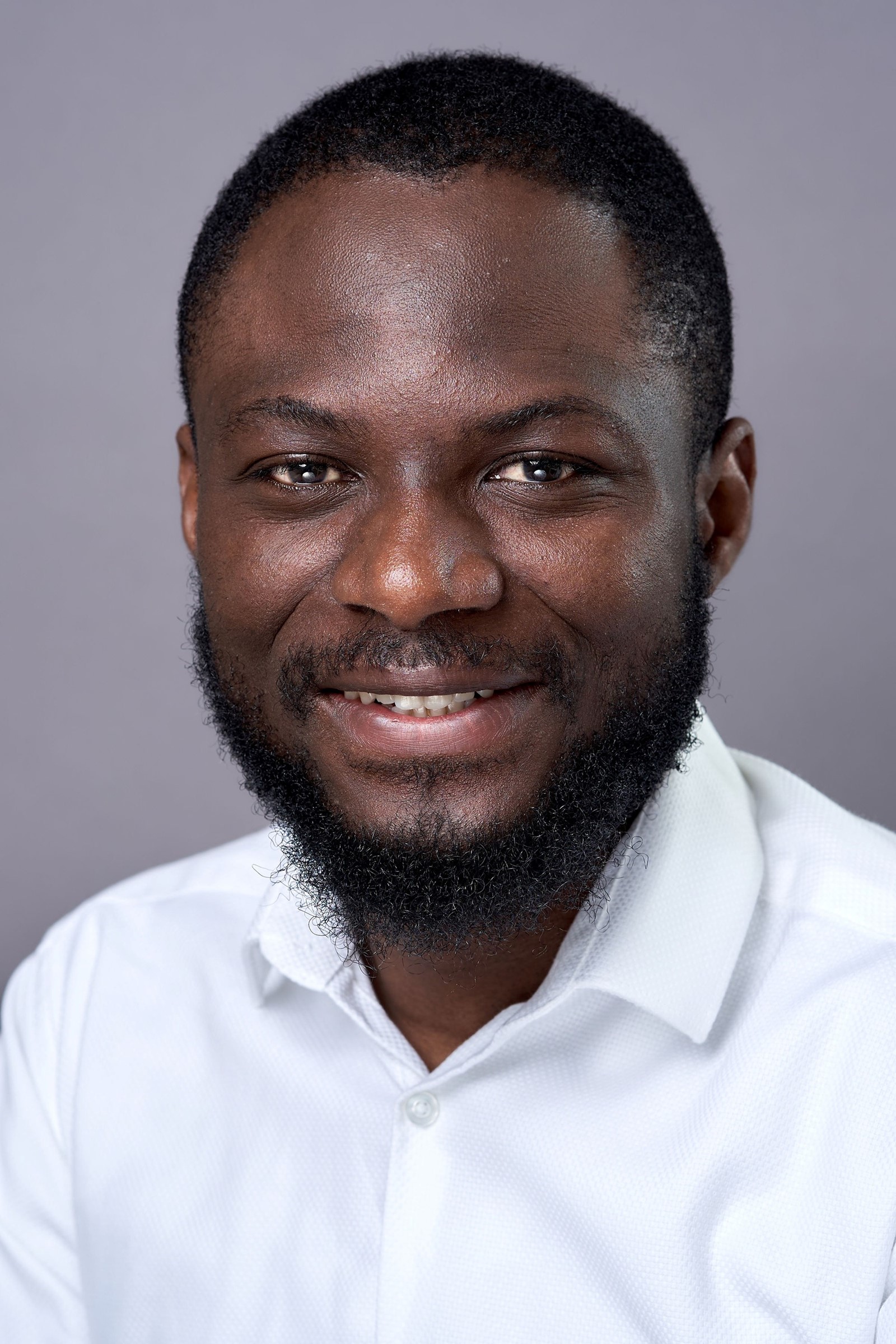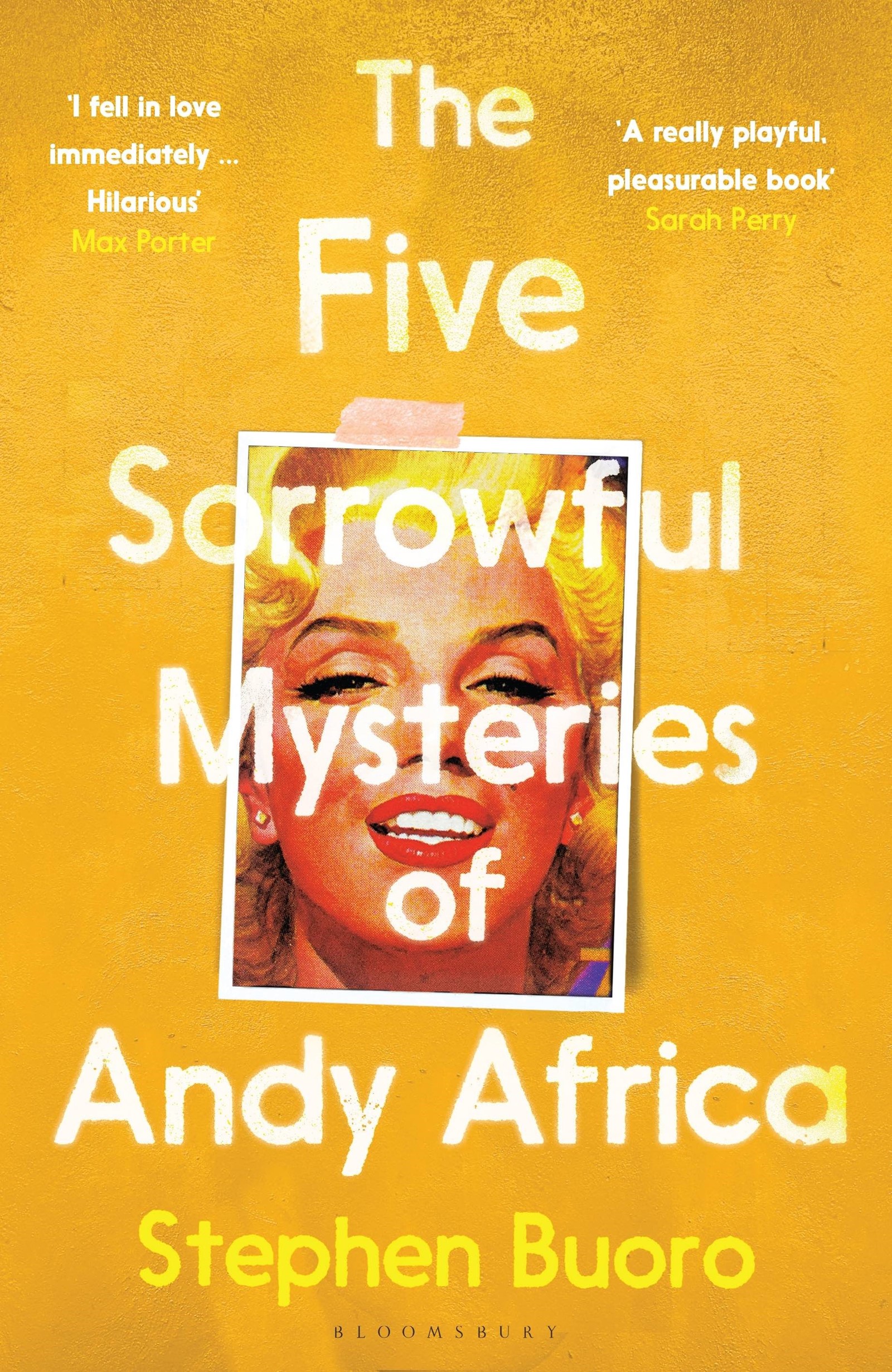Stephen Buoro’s debut novel The Five Sorrowful Mysteries of Andy Africa began life on a BlackBerry. It was a moment of almost divine intervention that triggered Buoro to start writing his novel on the spot where he sat, the voice of Andy Aziza flowing out of him and into his phone.
The book, a satirical and biting bildungsroman that takes aim at Nigerian society and culture, follows the titular Andy as he attempts to come of age in a country where most young people simply do not see a future for themselves. Andy’s love for the West, exemplified by his lust for blonde girls, sees him setting his sights outside of Kontagora, his northern Nigerian hometown. Being in his mid-teens, however, the only real travelling he can do is through his books, visiting the worlds of Kafka and Goethe. A keen poet, Andy’s life gets turned upside-down when the niece of the local missionary priest comes to town. A white girl who reads the classics and speaks numerous languages, she is everything Andy has dreamt about.
Buoro, who was born in 1993 and holds both an MA in creative writing and a degree in mathematics, moved to the UK in 2018 where he quickly began work on Andy Africa. Five years later, his stunning and satirical take on Nigerian society and culture is finally out.
Below, AnOther speaks with Buoro about his debut novel, discussing everything from religion and mathematical theorems, to Kafka and Dostoyevsky.

Barry Pierce: How long did it take you to write the novel?
Stephen Buoro: The whole process took about five years. The book officially began one evening in June 2018. I was sitting in my living room and I was in this crazy, creative state, and then this powerful voice came to me that was full of shame, had guilt and so much urgency and power about it. And I picked up my BlackBerry and I just started writing. After writing about 500 words or so, I began to re-read what I had written and it was the most powerful piece of writing I’d ever completed. I felt as though I was illustrating so many things about myself, my community, my country. And that piece is (mostly) intact as the opening to the novel.
BP: You have a degree in both creative writing and mathematics. Often, those subjects are seen as polar opposites of each other. How do you meld both of these worlds?
SB: I think it comes from the kinds of books I grew up reading. I really loved The Swiss Family Robinson. You know, it’s about this family who have to survive on this island and how science and theories come into play. At the time, it really intrigued me about sciences and art and, as you said, they are traditionally seen as different but I think they are much more parallel for me. Now and then, they intertwine.
BP: This is something that is very present in Andy Africa, especially with the theorems presented throughout the book. You have the concept of HXVX, which is this curse that plagues not only your characters, but the entire continent of Africa.
SB: I could spend ten years talking about this. [Laughs]. Nigeria is a place where things are crumbling. Most people are drawn towards older transcendental, supernatural, and theological ways of understanding. So for me and my friends growing up, we always thought there was this huge super-force that was antagonising us, causing all our struggles, making everything fail. Because, economically, politically, infrastructurally, socially, education – almost every system is failing in Nigeria. So Andy, in the novel, tries to attribute all this to a powerful super-force, HXVX. It’s everything that has impacted Africa, colonialism, slavery, kleptocracy, the collapse of democracy, all this kind of stuff.
“Many people growing up [in Nigeria] cannot see any future for themselves, and religion is the only thing they can grasp” – Stephen Buoro
BP: One of the things that initially drew me to your novel was its title and the reference to the Sorrowful Mysteries. It’s quite surprising to read a novel by a young guy that has such a focus on religion, and Catholicism in particular.
SB: I am hugely, hugely fascinated and invested in religion because it has hugely defined who I am, it’s hugely defined my country, my compatriots, my friends. In Nigeria, religion is everything, it’s just so huge and it presented this wonderful background for the story. Many people may not fully understand or appreciate the impact religion has had on post-colonial states, but it predominates everything, from the politics to the economics of the country. For people from where I come from, because we have no constants, we don’t have certainties. Many people growing up cannot see any future for themselves, and religion is the only thing they can grasp.
BP: Andy is this incredibly precocious character and he has an obsession with European literature; there’s references to Kafka, Goethe, Anthony Burgess. Are your literary tastes much the same as Andy’s, and who would you consider to be your biggest influences?
SB: Andy comes from me in many ways. One of my biggest breakthroughs when writing this book was: oh, I’ll make things a bit simpler for myself and write about things that I’m interested in and bring more elements of myself into the narrative. As for influences, every book I’ve read has influenced me, be they books I loved or books I didn’t like. My influences for this book in particular, you just called one, Anthony Burgess. JD Salinger’s The Catcher in the Rye, which I read at university and, before that, I didn’t even know you could write a book in such an irreverent style. I love Kafka of course but books like The Brothers Karamazov by Fyodor Dostoyevsky [were also influences].
“[Science and art] are traditionally seen as different but I think they are much more parallel for me. Now and then, they intertwine” – Stephen Buoro
BP: Nigeria is a country that has produced some of the biggest names in literature for several decades now, with Chinua Achebe, Wole Soyinka, Ben Okri, Chimamanda Ngozi Adichie. Is it somewhat daunting to be a Nigerian writer, knowing the huge legacy you have behind you?
SB: For me it’s not scary at all. It’s a huge privilege. Many people see the word ‘Nigeria’ and they don’t have much sense of what the country is. Nigeria is a huge country, it’s several times the size of Britain, there’s over 220 million people. And, historically, it’s several countries that have been forced into one. So many books have come from Nigeria but they’ve come from just some parts of the country. I mean, the Achebes and the Adichies are more from south-eastern Nigeria, the Soyinkas and the Okris are the south-west.
But from northern Nigeria, the texts are usually in local languages and very few writers have come from that region. I think they should be published more, in the west. They should be given more opportunities to share their own experiences of the world and, of course, colonialism and post-colonialism and all that.
The Five Sorrowful Mysteries of Andy Africa by Stephen Buoro is published by Bloomsbury and is out now.
